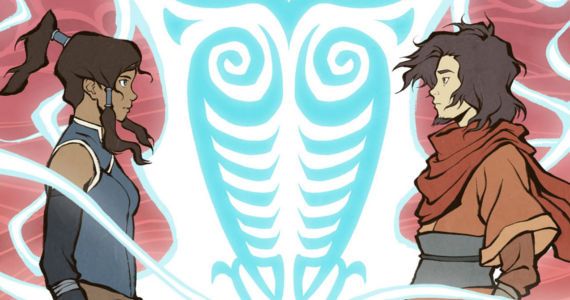

Don’t you think the world would be better off if leaders like them were eliminated?” As writer Toussaint Egan points out, one of Korra’s most consistent flaws is her blind faith in authority figures and existing power structures. He implores her, “You’ve had to deal with a moronic president and a tyrannical queen. Ex-White Lotus member Xia Bau founded the Red Lotus after the Hundred Year War because he believed the original organization had “lost its true purpose.” As Zaheer says, “Its members … became nothing but glorified bodyguards who served corrupt nations.” So the anarchist’s aim, like the Avatar’s, is to restore balance to the world, though their conceptions of balance are different.

As Zaheer explains to Korra in episode 9, the Red Lotus began as a faction inside the White Lotus, an ancient group dedicated to sharing knowledge irrespective of borders and politics. Over the course of the season, however, the freedom fighter’s motives become clear, while the difference between right and wrong becomes fuzzier.

Reina Sultan, journalist and co-creator of 8 to Abolition, a resource about police and prison abolition in the United States, recently tweeted, “I can’t believe how dirty LOK did Zaheer.” She explained the tweet to Polygon: “It’s not lost on me that Zaheer has an Arab name, further othering him to American audiences who already fear any type of politics that decry capitalism and imperialism.” Even the moniker of the secret society to which Zaheer belongs, “the Red Lotus,” is a tip off to the audience that he presents a uniquely dangerous, fringe threat to Korra and the world the color red is often associated with left-wing ideologies. When they label Zaheer a terrorist, viewers listen. Team Avatar is the audience’s moral compass though Korra and her friends are imperfect and make mistakes, their perspectives are meant to guide the audience. Zaheer meets Korra in the spirit realm Image: Nickelodeon

Characters within Korra’s circle who advise her like Aang’s son Tenzin and Toph’s daughter Lin Beifong, repeatedly use ableist terms like “lunatic” to describe him. The drama of the season positions the fugitive as radical and “crazy,” and anarchy is conflated with chaos. In the series, Zaheer’s actions are considered indefensible. In his 13-episode arc, he murders the Earth Queen in a surprisingly explicit scene, holds a community of air nomads hostage, and attempts to kill Korra while she’s in the Avatar state in order to end the Avatar cycle forever. Locked away for attempting to kidnap Korra when she was a child, Zaheer next liberates his co-conspirators and comrades: the lavabender Ghazan, waterbender Ming-Hua, and combustionbender P’Li.
Watch avatar korra season 3 free#
Among those new airbenders is Zaheer, a student of airbender Guru Laghima’s teachings whom viewers meet at the end of the first episode as he breaks free from a prison cell. Harmonic Convergence, an alignment of planets that occurs every 10,000 years, has also caused nonbenders to manifest airbending abilities, resuscitating the near-extinct power. When Book 3 begins, Korra has just defeated Unalaq and reopened the portals between the physical and spirit worlds, integrating the two. Yet, Korra’s season 3 enemy is an outlier in the pantheon of Avatar villains: Representing anarchy, he works in a collective, and his end-goal is freedom, not power. Zaheer, voiced by former Black Flag frontman Henry Rollins, is no exception. Many have observed that these adversaries can be interpreted as metaphors for extreme political ideologies like theocracy (Unalaq) and fascism (Kuvira). Unlike The Last Airbender, in which Aang’s long journey leads him to a faceoff against the colonizing, genocidal Fire Lord Ozai, Korra goes head to head with four foes, one per season. Book 3 could be described as the “red scare” season. And while the entire show is apropos today, the third season of Korra hits differently in 2020: The series’ villain and his quest to free the world of monarchs, nations, and borders are ultimately righteous. This August, when the world needed it most - in the midst of a global pandemic - the groundbreaking, polarizing sequel debuted on Netflix. Like its beloved predecessor, Avatar: The Last Airbender, Korra speaks to the pain and possibility of our current moment, following the master of all four elements as she struggles to live up to her past lives, confront her opponents, and restore balance. “True freedom can only be achieved when oppressive governments are torn down.” These words read like a message Sharpied onto a cardboard protest sign, but in season 3 of The Legend of Korra, they’re spoken by the antagonist, Zaheer.


 0 kommentar(er)
0 kommentar(er)
